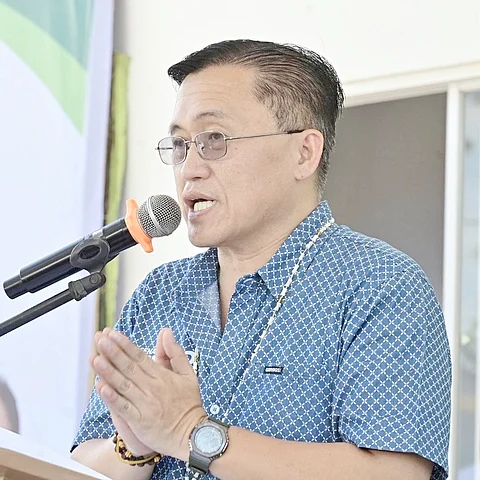
- NEWS
- the EDIT
- COMMENTARY
- BUSINESS
- LIFE
- SHOW
- ACTION
- GLOBAL GOALS
- SNAPS
- DYARYO TIRADA
- MORE

As the country enters the rainy season, Senator Christopher “Bong” Go renewed his call for the immediate implementation of Republic Act 12076, or the Ligtas Pinoy Centers Act, to provide permanent, safe, and fully equipped evacuation centers across the country.
Go, who topped the recent senatorial elections, urged concerned agencies to fast-track the rollout of these facilities, especially in disaster-prone communities.
Enacted in December 2024, the law institutionalizes dignified and disaster-resilient shelters nationwide. Go was the principal author and co-sponsor of the measure.
“Disasters don’t choose a time or season — whether fires or typhoons, Filipino families are always at risk. That’s why we must ensure there’s a proper evacuation center in every city and municipality,” he said.
The senator’s call came after his recent visit to fire victims in Tondo, Manila, one of several relief efforts he has led since his proclamation.
“Fire or flood victims shouldn’t be sleeping on sidewalks with just tarps and cardboard. It’s the government’s obligation to provide them with safe, decent, temporary shelters,” Go stressed.
The Office of Civil Defense (OCD) confirmed that the law’s implementing rules are now approved.
Local government units have been directed to submit proposed sites for assessment using scientific data from agencies like the DoST and DENR-MGB.
Full-scale construction and retrofitting of evacuation centers is expected to start later this year and continue through 2026.
Beyond evacuation centers, Go is also advocating long-term housing solutions. He filed Senate Bill No. 192, which proposes a Rental Housing Subsidy Program to assist displaced families as they recover and rebuild their lives.
“Losing your home is already hard, but it’s even harder when you don’t have a place to sleep while trying to start over. If families need to rent, the government should help,” he said.
To strengthen disaster response, Go also filed Senate Bill No. 188, seeking the creation of a Department of Disaster Resilience to lead a science-based, coordinated disaster preparedness system.
“We shouldn’t just react to disasters. We need long-term planning, risk assessments, and stronger rebuilding. Let’s stop waiting for the next tragedy before we act,” he urged.
Apart from disaster response, Go is pushing for cultural inclusion. He co-authored Republic Act 12224, designating 1 February as the National Day of Awareness on Hijab and Other Traditional Garments and Attire, promoting respect for cultural diversity.
“In our country, it’s normal to have different beliefs, clothing, and cultures. What’s important is respect — because without respect, there’s no unity,” he said.
Signed by President Ferdinand Marcos Jr. on 18 June, the law encourages dialogue on cultural identity and religious freedom while reaffirming that observance is voluntary.
“Respect doesn’t require agreement,” Go explained. “What matters is creating space for recognizing each other’s cultures and beliefs.”
Go’s cultural advocacy extends further through measures like the Equal Access to Public Cemeteries Bill and the Delayed Registration of Birth Act, aimed at helping marginalized groups, especially Indigenous Peoples, gain legal identity and access to services.
He also continues to push for increased funding for the National Commission on Muslim Filipinos (NCMF) to support education, healthcare and community programs.
“These efforts give a voice to those who’ve long been unheard. It’s a way to honor their history, culture, and dignity,” he said.
Go called on schools, LGUs and civil society to participate in cultural awareness efforts. “It’s a great opportunity for young Filipinos to learn more about the richness of our heritage.”
As threats from typhoons, floods and fires intensify, Go reaffirmed his commitment to prioritize the welfare of Filipinos, especially the poor and marginalized.
“I hope to be remembered not just as a senator, but as a public servant who always put Filipinos first,” he said.
